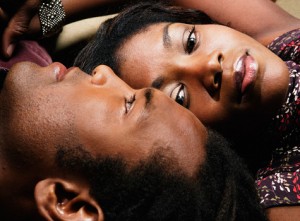(ThyBlackMan.com) For years, I made plans the last Saturday of February to spend as much time on the couch in front of the TV watching Tavis Smiley’s State of the Black Union. It was a day of great conversation, and I always had lots to think about during and after those conversations.
The 2004 conversation focused on the Black family. I had been married only a little over a year, so my wife and I enjoyed the conversation immensely. During that morning session, Dr. Orlando Patterson, the famed Harvard sociologist, presented some harsh realities. He quickly indicated that Blacks have the lowest rate of marriage, the highest rate of divorce, are the least like to marry after cohabitating, and have the highest percentage of children raised without a father.
He plainly asked, “Why are our relationships so fragile?”
A lively banter ensued, especially between Bishop Vashti McKenzie and Dr. Cornel West. Bishop McKenzie argued that we don’t teach how to have good  relationships, and further suggested that the women should close “the candy store.” Dr. West retorted that some would love to have visitors to the candy store, but don’t have any because of Black loneliness. West suggested that men suffer from an immature ego, where they grow big, grow old, but never grow up. Women, on the other hand, have an insecure ego—where they view themselves primarily through the male gaze.
relationships, and further suggested that the women should close “the candy store.” Dr. West retorted that some would love to have visitors to the candy store, but don’t have any because of Black loneliness. West suggested that men suffer from an immature ego, where they grow big, grow old, but never grow up. Women, on the other hand, have an insecure ego—where they view themselves primarily through the male gaze.
Patterson chimed in later with a harder question. He asked why is it that Blacks have the highest rate of church attendance, pray the most, and are more religious, yet have high rates of infidelity and unfaithfulness? He further asked, why is there this disconnect between our religiosity and our behavior?
Patterson was right, and today the data still support his concerns.
Research indicates that African Americans are the most religious group in the United States. A January 2009 report by the Pew Forum on Religion & Public Life called “A Religious Portrait of African Americans,” found that “While the U.S. is generally considered a highly religious nation, African-Americans are markedly more religious on a variety of measures than the U.S. population as a whole, including level of affiliation with a religion, attendance at religious services, frequency of prayer and religion’s importance in life.”
So it becomes mind boggling to note that approximately 72% of Black babies are born out of wedlock (versus 29% for whites). Blacks are 12% of the population but account for 39% of all abortions. The CDC estimates that 39% of Blacks (versus 12% of whites) 14-29 are infected with Herpes simplex 2, including 48% of Black women. Finally, from 2005-2008, Blacks accounted for 49% of all HIV diagnoses, including 64% of diagnoses for women, 66% due to heterosexual contact, and 66% of diagnoses of children ages 13 and under.
There is clearly a disconnect between religious beliefs and behavior. In fact, the religious orientation may inhibit what is needed most—open and honest dialogue in hopes of changing these dreadful statistics.
For years I have pondered this question as a vice president for student affairs, and now as a president. Sure, all colleges and universities have students who have experienced all of the consequences of sexual activity, but I guess I am impacted more because any statistics about pregnancies, STDs, or abortions have names and faces that I know.
So this year I decided to try to do something about it.
In 1991, the hip-hop group Salt-N-Pepa released the popular and controversial song, “Let’s Talk About Sex.” Twenty years later, there is still a great need for conversation about sex: today, the consequences of sex and not talking about it create a myriad of social justice issues. During the 20th anniversary of this iconic song, Philander Smith College, a historically Black institution affiliated with the United Methodist Church, will host its first Sex Week. The activities during the week will provide an opportunity for members of this community to engage in open and educational conversations about sex.
The goal is to provide a forum for frank and honest dialogue among the students, faculty and staff of Philander Smith College to promote healthy behaviors and good decision making with regards to sex. The range of speakers and topics includes STD and HIV education, sexual harassment, and Christian relationships.
This may be controversial to some, but for me, the controversy is allowing these dreadful statistics to continue to spiral out of control and not attempt to change behavior. Hopefully, the conversations this week will help begin to align beliefs with behavior.
Written By Walter Kimbrough

















Leave a Reply